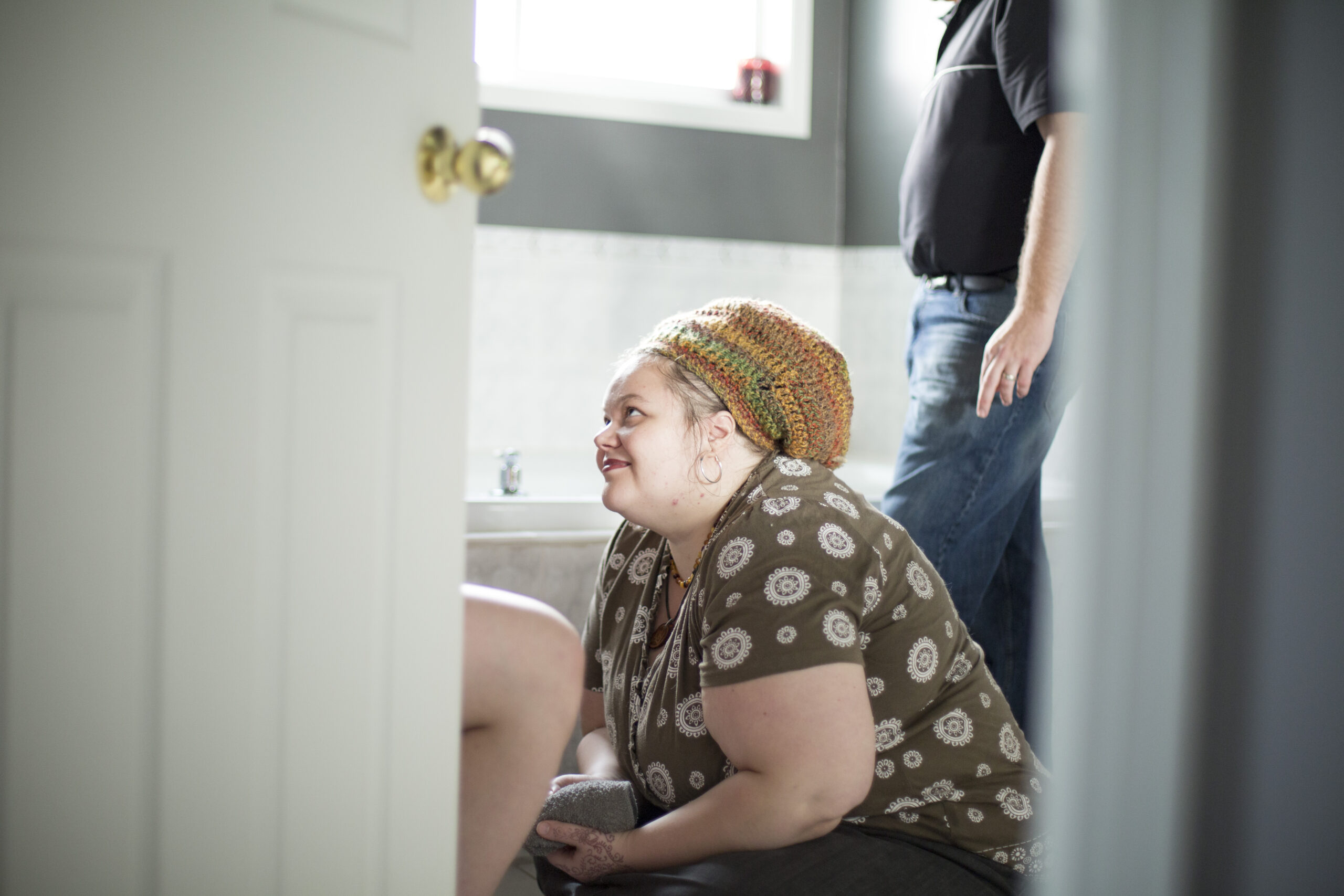Beth Murch has been working as a doula in the Waterloo Region for 11-plus years, and has been present at over 100 births.
“The burnout rate for doulas in this Region is about three years so I’m pretty on-fire for the work,” she laughs. Though doula work is her primary source of income, she sees it as more than a job; it’s her vocation.
Having recently given birth myself, I was familiar with doulas as one of the optional buy-ins of our modern birthing landscape, along with prenatal classes, birthing photography and the like.
Doulas are non-clinical care providers who offer “physical, emotional and informational support to the mother before, during and just after birth; or who provide emotional and practical support during the postpartum period,” the Doulas of North America website explains. Doula work could involve helping to develop a birth plan, advocating on behalf of the person giving birth (and their partner/family if applicable) during labour, and offering postpartum breastfeeding assistance.
At the cost of at least several hundred dollars, doula services sounded nice and all but really privileged; couldn’t I just read up and talk to some friends to prepare myself? And besides, a lot of the doula websites I saw gave off major boutique-service vibes. How necessary is this, anyway? I wondered. What’s the big deal? And then I met Beth Murch.
The passion that Murch has for birth and babies is evident on her very informative and well-sourced website, and manifests as a calm, warm confidence in person. When I ask about what she describes as a ‘calling’ to doula work, she talks about the vulnerability that people experience when they are giving birth.
“It’s an area…that people don’t talk about in our culture and there’s a lot of mystique around [birthing],” she says.
Not knowing what to expect in birth until you’re in it can be vulnerable and scary enough as is; in the case of any sort of “otherness,” it can be even more so.
Murch has had clients who don’t speak English and clients who are deaf. Her website lists populations that she has training and comfort in assisting, including survivors of sexual trauma, individuals who are HIV-positive and past or current substance users. These communities are largely unnamed in popular prenatal and birthing resources.
“The system isn’t tailored to support those communities,” she explains. A doula’s role, then, is to advocate on behalf of these individuals and to serve as a liaison between medical practitioners and the person receiving care.
On a grander scale, Murch sees doula work as a means of increasing accessibility to birthing information and education and community resources.
When I ask about the seeming eliteness of doula care Murch agrees that there are some doulas that market themselves that way.
“There’s a lot to be said for that. It’s easier to make a living that way.”
Murch has had as many as five clients (meaning she attended five births) in a month, and usually has at least one, but she is also open to a sliding scale of pay for individuals who may need her care but feel unable to afford her full fee.
I imagine it comes down to philosophy. Murch sees the doula’s role linked to social and reproductive justice, where issues of race, class and colonialism, for example, affect how individuals are able to access care, the care they receive, and their birthing experience.
If it sounds theoretical, it’s not. Murch tells me about her experience supporting a woman of colour who, giving birth shortly after the Trayvon Martin shooting in Florida, struggled in her labour, not wanting her child to be born into the world where he might be shot for the colour of his skin. She cites a recent North American study showing that people of Arab descent receive markedly worse prenatal and perinatal care now than they did before 9/11.
Imploring a wider awareness of reproductive justice within the doula community, Murch founded Revolutionary Doula Training two years ago. She has also partnered with two other doulas to form the Timshel Holistic Collective, which offers an array of pre-natal, birthing and post-natal services.
I went into my meeting with Murch not really knowing what to expect. In the face of her honest, radical exploration of birth and birthing individuals, I was totally humbled, had my own privilege checked in a big way and fell a little in love.




Leave a Reply